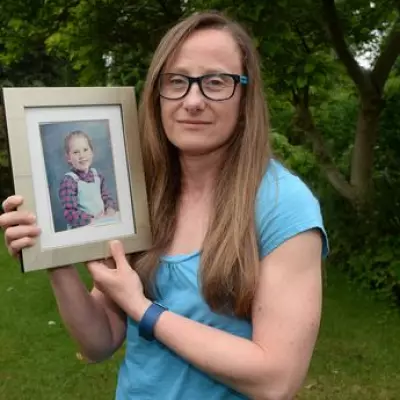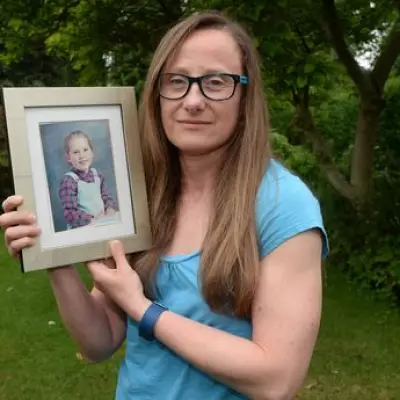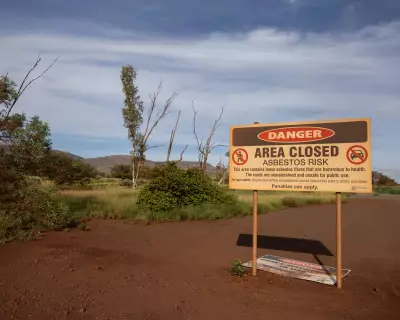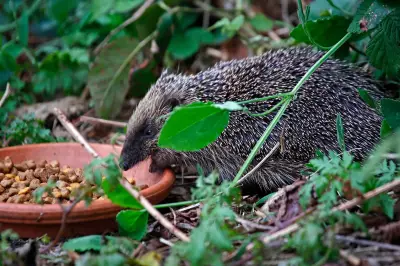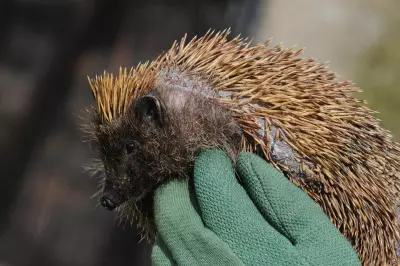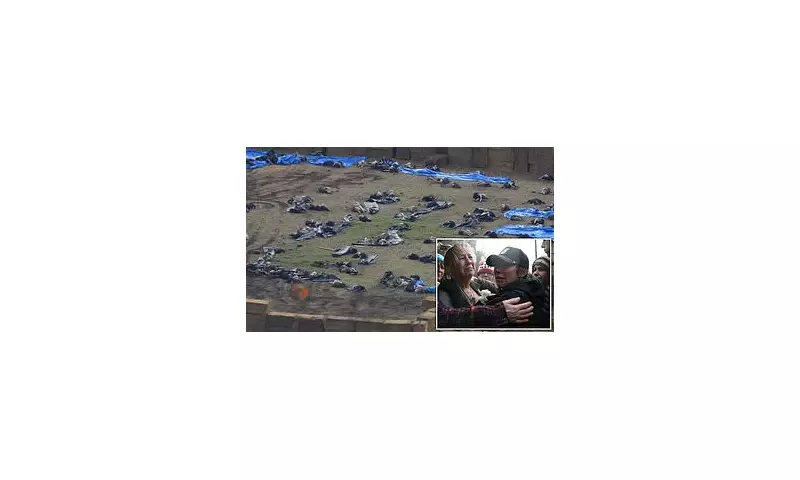
In a dramatic nighttime operation that concluded months of bitter confrontation, Canadian authorities executed 314 ostriches on a remote farm in British Columbia last week. The mass culling followed an avian flu outbreak and represented the final chapter in an extraordinary standoff between federal officials and the birds' determined defenders.
The Final Execution
As darkness fell on Universal Ostrich Farm in Edgewood, a village nestled in the shadow of the Rockies, a firing squad prepared to carry out its grim task. Workers had erected a tall circle of hay bales to conceal the killing field from view, while police sealed off nearby roads to keep protesters at bay.
Hundreds of demonstrators who had gathered for group prayer sessions could only wait in what witnesses described as "agonised terror" as the execution approached. One distraught onlooker reportedly tore at the fence screaming, "Make it stop" before police cut the lights and marksmen wearing night-vision goggles opened fire with high-powered rifles.
The sound of gunfire soon drowned out the wailing of grieving supporters. By morning, 314 ostrich corpses littered the holding pen. A team in Hazmat suits arrived to cover the bodies in tarpaulin before transporting them for mass burial at a landfill site.
Months of Legal Battles and Bizarre Claims
The execution came just hours after Canada's Supreme Court refused to block a lower court order that had signed the death warrants for birds with names like Lulu, Priscilla and Q-Tip - each with distinct personalities according to their owners.
The ostrich saga began unfolding last December like the plot of a conspiracy thriller when cases of avian flu were first detected in the flock. The controversy quickly escalated, drawing in right-wing activists, anti-vaccine campaigners and even figures from the Trump administration.
Farm owners Karen Espersen and Dave Bilinski had been rearing ostriches on their 58-acre property for three decades, initially selling meat, hides and feathers while also producing moisturiser from melted ostrich fat. When their animals started becoming ill and dying in December, locals reported seeing ravens picking over approximately 20 carcasses.
Canadian Food Inspection Agency (CFIA) experts in Hazmat suits determined the birds were being kept in conditions that put them at high risk of bird flu, including sharing pond water with wild ducks. Tests confirmed the presence of H5N1 virus, which has killed millions of poultry birds since 2024 and can spread to numerous mammal species.
International Attention and Escalating Conflict
As the farmers resisted the culling order, their daughter Katie Pasitney launched a social media campaign pleading for help to save what she called her "big, beautiful babies." The cause attracted veterans of Canada's "Freedom Convoy" protests, with organiser Tamara Lich arranging benefit concerts for the birds.
By late January, up to 200 protesters had established camp across from the ostrich pens, with one particularly committed supporter walking around in a full-body ostrich suit. The farm transformed into a fortress with trip wires connected to "bear bangers" and volunteers patrolling with walkie-talkies.
The standoff took increasingly bizarre turns with claims of government drones executing birds with lasers and theories about pharmaceutical industry conspiracies aimed at suppressing revolutionary ostrich-based scientific breakthroughs. The farmers had been working with Japanese scientist Yasuhiro Tsukamoto, who believes ostriches' powerful immune systems could lead to breakthroughs against bird flu, cholera, Covid and even obesity.
The controversy eventually drew international attention, with US Health Secretary Robert F. Kennedy Jr expressing horror at the planned culling and Dr Mehmet Oz offering to transport the birds to safety at his Florida ranch. Billionaire supermarket magnate John Catsimatidis claimed he even discussed the ostriches with President Donald Trump.
Meanwhile, tensions in Edgewood escalated dangerously. Neighbours reported intimidation, death threats and arson attempts. In late September, a 40-vehicle police convoy moved on the farm after electricity was cut and enforcement drones circled overhead. Espersen and Bilinski were briefly arrested before being allowed to return.
The CFIA maintained throughout that international rules required immediate culling to prevent avian flu spread, describing it as the "most appropriate and humane option." With the Supreme Court's refusal to intervene, the months-long standoff ended in a single night of gunfire that left Karen Espersen reportedly writing on Facebook: "Rest in peace my feathered friends. This is a sad day for Canada."


